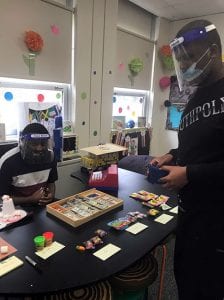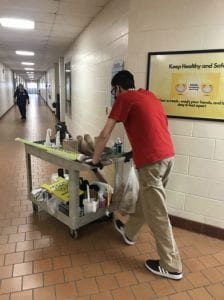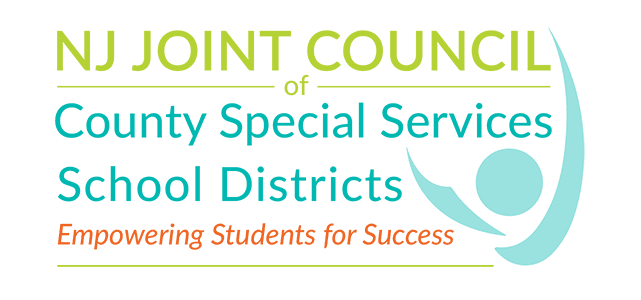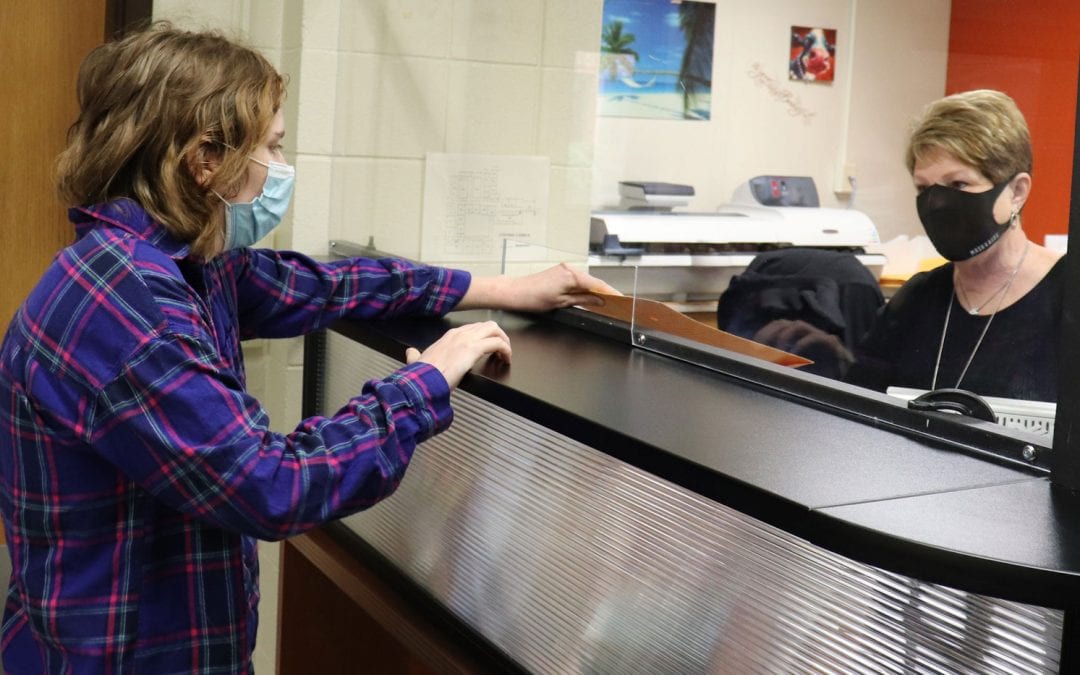Students with autism begin working toward the goal of independence even in their earliest years of schooling. “While my students are very young, many lessons focus on mastering life skills that lead to greater autonomy,” explained Victoria Fitzpatrick, a special education teacher in the Autism Program at Mercer County Special Services School District (MCSSSD). “Personal care skills such as eating, dressing, and grooming are taught and supported daily.”
She said other skills such as self-regulation and self-monitoring are taught to pave the way for students to succeed both in and out of the classroom. These skills are reinforced year after year in the classrooms across New Jersey’s county special services school districts to help students grow and often transition from school to career.
“I believe it is so important for the community to see that just because [individuals] are diagnosed with autism or other disabilities, they are still able to learn and contribute so much to our society – as well as have society learn so much from them,” said Shanell Principato, a special education teacher and coordinator of Work-Based Learning/Community-Based Instruction at Gloucester County Special Services School District’s (GCSSSD) Bankbridge Development Center.
At GCSSSD, each student receives an individualized plan based on what he or she has enjoyed and done well in prevocational training. A team of teachers works to help each student move through that plan by helping to secure community-based work opportunities with specific supports in place depending on the student’s needs.

Students at Salem County Special Services School District practice a range of life skills throughout their educational journey, and some students even move on to more technical training in partnership with the Salem County Vocational-Technical School.
For one student who was working to portion frozen chicken wings into serving-sized bags, those supports included a visual schedule, a template to count out how many food items are in a serving, and a communication board with core vocabulary words along with words specific to the job site. The student previously had difficulty following directions, but Principato consulted with bus drivers and job coaches to guide the student toward greater autonomy. After a few months, the student was able to independently get ready for work, ride the bus, and successfully prepare for and complete job requirements.
Bergen County Special Services School District’s Sandra Melicharek, who serves as principal of the Autism Continuum, said it is not uncommon for staff to go the extra mile to develop such individualized plans for students.
Her colleague, Anik Ostrowski, a job coach at the district’s New Bridges Middle/High School, shared how a team approach helped a soon-to-be graduate transform from “missing classes to being ready for interviews remotely.” This team of individuals, knowing the great potential of this student, focused their collective efforts on preparing the student for a successful future. Two of the district’s Board Certified Behavior Analysts, Cassie Romano and Christopher Colasurdo, tackled distinct goals: to develop a motivation that re-engaged the student in learning, and to conduct an in-depth social skills assessment focused on employment-related instructional goals. Jennifer Venezio, the Structured Learning Experience teacher, worked with the student to create a resume, and a host of faculty across the district then participated in mock interviews with the student. These were recorded so the student could learn to self-assess the social skills he had been working on. “The student transformed from a state of disinterest to a state of preparedness – dressed and ready for success,” emphasized Ostrowski.
Training and Job Coaching Help Employees with Autism Showcase Strengths
Salem County Special Services School District (SCSSSD) has extended its team preparing students with autism for the workforce to include educators at the Salem County Vocational -Technical School. Now three years old, the district runs a career training program for higher functioning students with autism in partnership with the neighboring vocational- technical school. Students spend a year in a career exploration program and then choose an area of focus for their remaining high school years.
“So far we have students excelling in computer assisted design and drafting (CADD) and auto maintenance,” said Dr. Jane Whittinghill, Director of Related Services and Autism Programs for SCSSSD. She explained that students participate in their selected shops, lunch, and physical education/health class with same-age peers and receive support in other academic areas from SCSSSD teachers. The program has proved successful thus far, with students learning technical skills for a transition into the workforce while practicing important life skills and making friends with an expanded student population.
Cape May County Special Services School District (CMCSSSD) also shares many success stories of students with autism thriving at work. Ian Thompson has been employed at Smeltzer’s & Sons Feed and Garden Supply since 2019 and is a valued member of the store’s team. Ian worked alongside his job coach to learn the skills needed to accomplish inventory and pricing, stock shelves, weigh and bag birdseed, and assist customers with large, heavy purchases.

Billy Vogt, a student at Cape May County Special Services School District, works on his school’s maintenance and custodial team and hopes to remain employed with the team after graduation.
Billy Vogt, another CMCSSSD student, worked at ACME and ShopRite before participating in work-based learning at The Habitat for Humanity Resale Store. He now works as a member of his school’s maintenance and custodial team and plays a vital role in keeping the school safe, clean, and in good working order. It’s something he wants to continue after graduating this year.
“Behind every individual with autism who is working in the community, there is no doubt a support system largely comprised of teachers and other professionals who supply endless encouragement, support, and lessons to help that individual succeed,” said Jamie Moscony, assistant superintendent of CMCSSSD.
“There is also an employer who took a chance on that employee, who extended a bit of kindness,” added Dr. Howard Lerner, Superintendent of Bergen County Special Services School District and Chair of the NJ Joint Council of County Special Services School Districts.
Each person who takes the time to get to know an individual with autism and develop trust and understanding through that relationship contributes to the greater goal of Autism Acceptance Month: fostering worldwide support and inspiring a kinder, more inclusive world. The importance of that goal is further magnified by statistics from Integrate Autism Employment Advisors revealing the unemployment rate of college graduates with autism is an astounding 85%.

